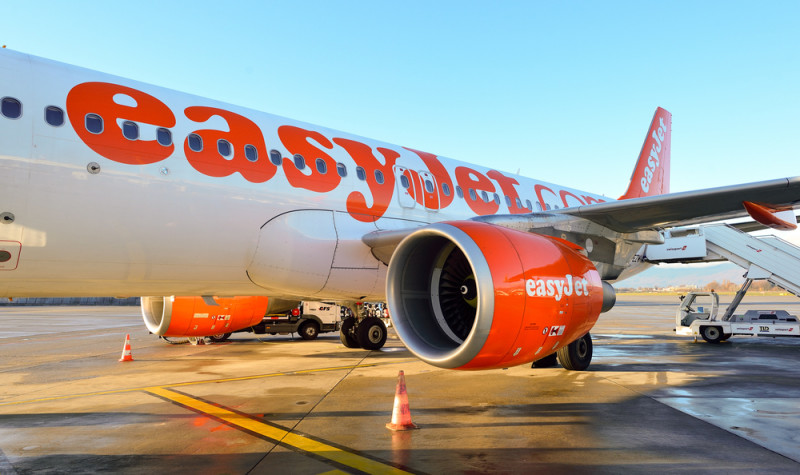Can easyJet and IAG’s share prices recover to their pre-pandemic levels?

While many FTSE 100 and FTSE 250 shares have recovered to their pre-pandemic levels, easyJet (LON: EZJ) and IAG (LON: IAG) are not among them. The two airline stocks currently trade around 50% and 60% below their February 2020 levels, respectively.
Clearly, they continue to face extremely uncertain trading conditions as a result of Covid-19 that could materially improve or worsen in the short run. But with low valuations, sound finances and a likely long-term recovery in air travel passenger numbers, both stocks could offer recovery potential.
An uncertain future
IAG stated in its first-half results that it does not expect passenger demand to return to 2019 levels until 2023 at the earliest. Indeed, the future for the industry depends largely on the path taken by Covid-19.
In the short run, Covid-19 seems likely to cause further disruption for both companies. With elevated case numbers in the UK and worldwide, ongoing travel restrictions may lead to lower capacity across the airline industry. This may result in continued losses for both businesses that put additional strain on their financial positions.
Financial standing
Following equity raises and severe cost reductions, easyJet and IAG appear to have the capacity to survive further difficulties in their operating environments. For example, easyJet had liquidity of £4.4bn at the end of September, while IAG’s liquidity stood at £8.6bn at the end of June.
Meanwhile, easyJet reduced costs by £510m in the 2021 financial year. It expects at least half of its savings to be sustainable. IAG cut costs, excluding fuel costs, by 44.5% in the first half of its current financial year.
Clearly, further rights issues cannot be ruled out. However, both companies appear to have the means to survive continued operating difficulties in the short run.
A margin of safety
Due to an extremely uncertain outlook, obtaining a margin of safety for both stocks is likely to be imperative. Although forecasts are clearly of limited use due to an opaque outlook for the industry, market expectations for IAG and easyJet suggest they could offer good value for money
For example, IAG is forecast to deliver earnings per share of 23.5p in the 2023 financial year. This means it currently trades on a forward price-earnings ratio of just 7. Similarly, easyJet is expected to generate earnings per share of 61p in 2023. This equates to a forward price-earnings ratio of 10.
Should the industry experience an improving outlook as travel restrictions ease, investor sentiment could strengthen materially from what appears to be a relatively low base.
High risk
While the global economy’s uncertain outlook means that stock market volatility may rise in the coming months, airline stocks could experience relatively dramatic price changes. As such, they remain high-risk stocks.
However, with what appear to be sound finances and measures to limit cash burn, IAG and easyJet could overcome ongoing threats from Covid-19. Moreover, their share price levels suggest they offer recovery potential over the long term as passenger numbers gradually rise and demand for their services increases.
Comments (0)